
We kindly inform you that, as long as the subject affiliation of our 300.000+ articles is in progress, you might get unsufficient or no results on your third level or second level search. In this case, please broaden your search criteria.


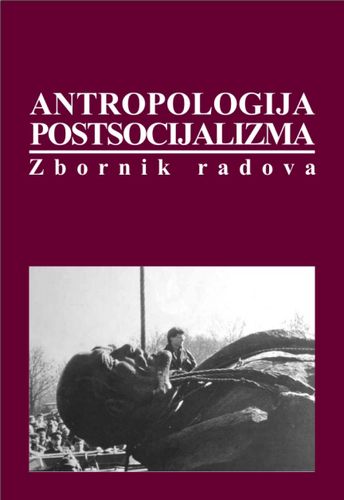
The goal of the paper is to denote the fundamental questions and problems of the (anthropological) interpretation of post socialism, commencing from its initial moment, that is, the identification of the event that indicates the establishment of transition as a social, political and cultural process. After assessing the circumstances of interpreting transition as a change of a global nature, particular consideration will be focused upon the local: how, principally in the Croatian social and humanist sciences, the question of "shift" is being reproduced considering the idiosyncrasies of the Yugoslav socialism.
More...
Unlike other transitional milieus, countries of the former Yugoslavia have had contact with privately owned business in their pre transitional period, i.e. in the era that preceded their economic, social and cultural transformation into capitalism. Private entrepreneurs in Serbia have always had a unique status from a legal, social, and culturally cognitive position. In the essay, preconditions and motives, through a cultural conceptualization viewpoint, are discussed.
More...
The process of privatization, in other words the transformation of the former state owned, into private property, represents an element of the "transitional package" that brings about expectations of procurement for the ex-socialist societies into a state of "new economic normality" that is, in today’s societies and economy, represented by liberal capitalism. In the examination and analysis of the privatization through the economic, governing and expert milieus, this process is frequently situated in the context of economic and political study. In doing that, the investigation of the social and cultural implications of the process that stems from privatization representing not only a modification of the ownership structure, but a complex process in which there is an encounter of the different business and organizational cultures of "east" and " west", and through which they are subject to a reexamination and revision of some of the basic cultural categories, such as time, the idea of a person, concept of production, labor, as well as the questions of responsibility, freedom, creativity, independence, is recurrently being disregarded. From such a perspective, that is pursued by many anthropologists who deal with post-socialist countries, it comes about that privatization will foster, not only, a novel mode of ownership and a new breed of business, but primarily, a new category of social individuals, that are expected to epitomize the new economic and social order, in which they are successfully integrated, so as to reproduce it. In other words, the "disciplining" of the manufacturers, is intrinsically linked to the transformation of the logic of economy that is based upon the"independent consumer" that twists privatization into an ambiance in which questions of responsibility, choice, freedom and coercion, are discussed and negotiated. In this paper such queries will be inspected through a privatization of a local brewery in 2003, by a known, but not a leading world beer and beverage producer.
More...
The acknowledgement of post socialism as a specific culture that rose upon the remnants of the political and social system of Eastern Europe and Asia, was until the 90's, a marker of Western anthropological theory, as well as its ethnographic terrain. The proliferation of such a anthropological paradigm was frequently executed undermining the local practices. They were perceived as uninformed or nationalistic, and in the case of the Balkans, even indirectly responsible for the war and ethnic cleansing. Such denial of the local discourse, on the other hand has unlocked a contradiction through which it is perceived that the socijalist matrix was responsible for nationalism, even dough it was based upon class, and not a national identity. But such a paradox is a product of a more fundamental anthropological embeddedness in the Enlightenment etiquette that was built into the foundations of anthropology. Negation of the practices of others, and the introduction of "rational, better, more informed and advanced", is a precondition for the formation of the other in anthropology. Even if it seems that in the anthropology of post socialism we perceive a reinvention of such Enlightenment/colonial discourse, it can be exposed through the examples of the Dalmacija depiction by Albert Fortiss and Ivan Lovric that such development commenced long before, almost at the dawn of anthropology in Eastern Europe.
More...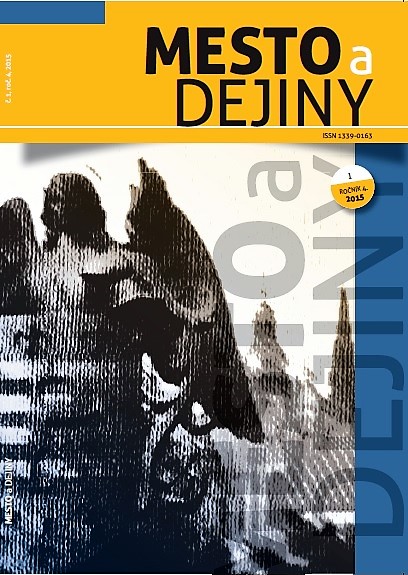
The paper deals with complex problems in addressing the adverse housing situation of the Roma population in Košice. After World War II, part of the city known as the gypsy camp under Moldavská way found itself in an extremely exposed position at the entrance to the city. Arrival the amount of working class from rural areas with extensive construction and urbanization ratios further deepen. Numerous Roma growth was evident. Housing problems are addressed through an allocation of older apartments, phasing out the huts in the camp and fi nally focusing on specifi c Roma settlement. The idea of a separate settlement originated in the mid-60s, in 1970, the planned housing units was not built. Another intention of anticipated settlement was in the area Myslava with lower standard family houses. Because of the high costs the concept of prefabricated houses gallery type was born. The government in 1976 refused to deal with Roma housing in specifi c neighbourhoods. Council city national committee nevertheless approved the construction of Luník IX without a specifi c focus. The construction was carried out in late 1970s, several policies were processed recall procedure Roma families from the camp as well as the old city, according to various streets. In 1981 began the history of Luník IX, its ethnic ghettoization with disastrous consequences to the present.
More...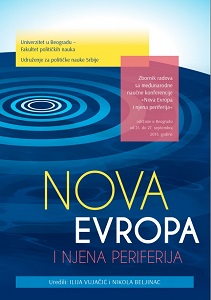

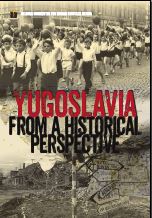
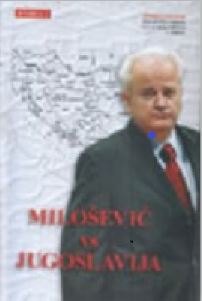

Despite the diplomatic, military and political defeat of the Greater Serbia project of Slobodan Milose-vic's regime, despite the fact that he is answering to the international tribunal today for crimes commit-ted in his conduct, crimes involving genocide in Bosnia, myths created by Milosevic's propaganda in an attempt to conceal their tracks, they survived in significant parts of the Serbian public to this day.
More...


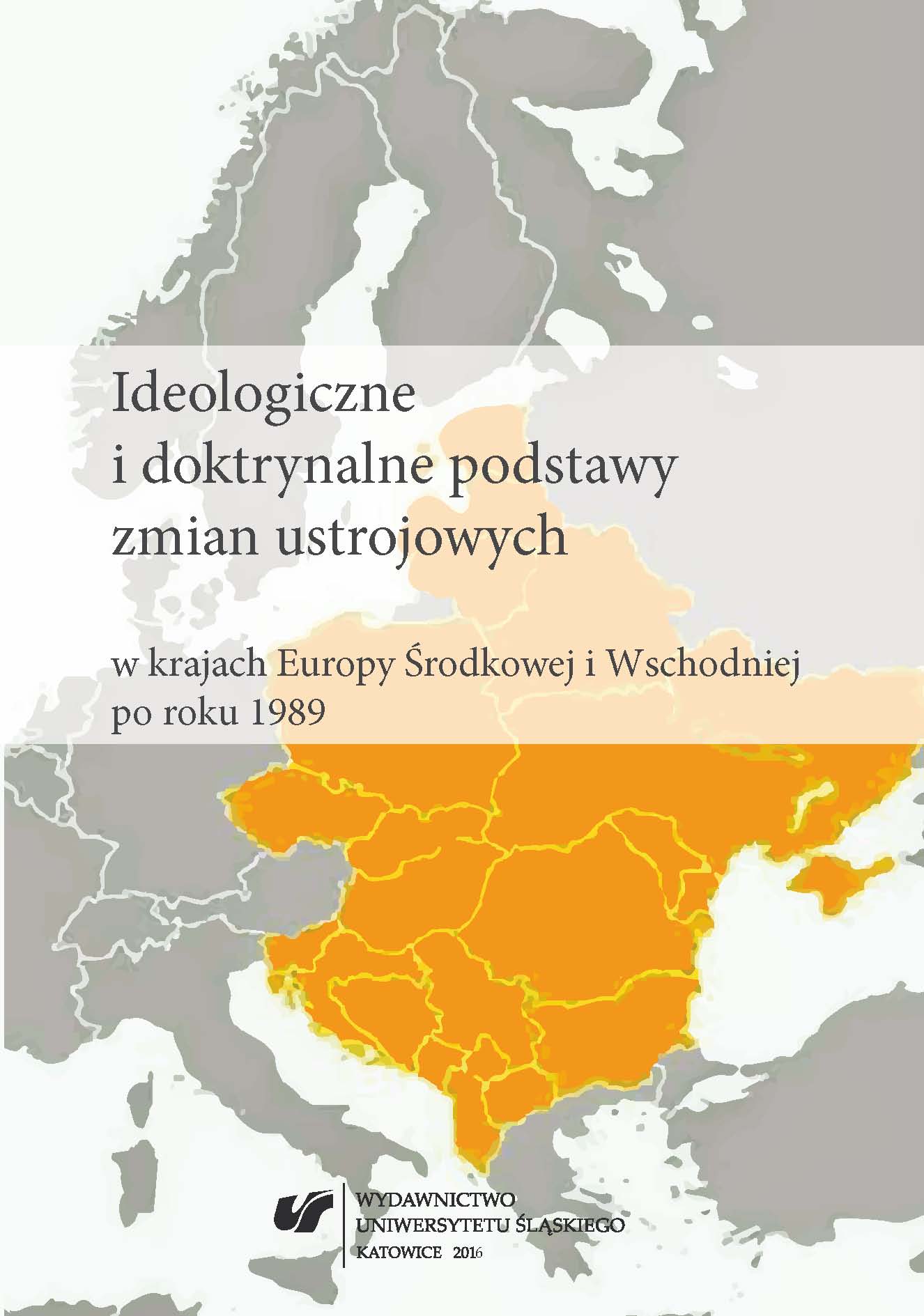
The article touches upon the issue of the development of the ideological framework of political parties and other political organizations of the radical right in Central and Eastern Europe after 1989. The main aim of the author is to attempt a comprehensive description of the beliefs of the organizations in question in the light of the postulates of the so-called “Third Position,” perceived as an alternative to both liberalism and communism. The article focuses primarily on two spheres of the political life, i.e. economy and social issues. Such an innovative look at the ideological framework of the far right can, in turn, influence the perception of those political parties and organizations, both in political science as well as other social sciences.
More...
The aim of the article is to analyze the activity and ideological foundations of Ukrainian right-wing parties, on the basis of a case study of two such parties: Svoboda and Right Sector. The author concludes that the Ukrainian right-wing organizations consistently support Ukraine’s integration with the rest of Europe, seeing in that endeavor a guarantee of freedom and independence for Ukraine. The Ukrainian right-wing parties draw ideologically from the Ukrainian national traditions and the legacy of the Ukrainian independence movement that inscribes itself into a larger European tradition.
More...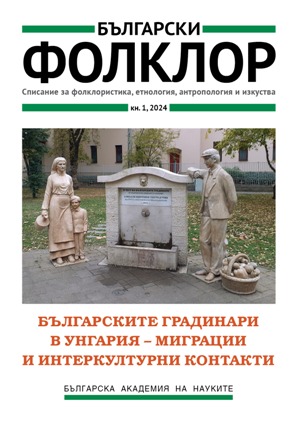
The purpose of the research is to outline the specifics of Bulgarian gardeners and Bulgarian horticulture in Budapest in the first quarter of the 21 century by means of two examples.Methods of observation, biographical approach, and free and semi-structured interviews are applied. The relationship between Bulgarian horticulture and cultural heritage is analyzed.The study is the result of the author’s participation in a project “Migrations. Modernities, and Intercultural Mediation – Bulgarian Immigrant Groups to Hungary in late 19th and early 20th c. and their Impact on the Social and Cultural Life of the Host Society”.
More...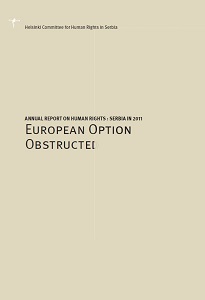
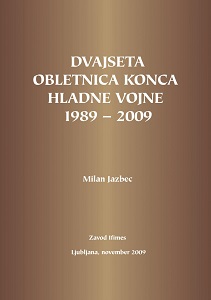
Our thoughts have the ambition to reconsider, from selected aspects and in a generalized sense, what happened twenty years ago and how we look at it today. At the same time, we will reach out to different areas and here and there rely on the broader time period just indicated and try to justify the hypothesis that it is, on the one hand, a continuous, complementary and unpredictable process of change, and on the other hand, a logical historical process , which science should nevertheless understand and predict to a certain extent, since there were enough signs, as well as past experiences. The latter is all the more so if we know that Auguste Commte laid the maxim in the foundation of sociology as a science of society that its goal is to analyze in order to understand, and to understand in order to be able to predict. Last but not least, it is the same, although in a symbolic way, Prešeren also said when he wrote in the fifth gazelle, "the year begins to grow old already in the spring": when a process is at the peak of its activity, we can already perceive signs of its change in it. With this, we clearly indicated that we will also touch on the phenomenon and the city of Slovenia in this process. With all of the above, it is above all true that even at the end of our thinking we will still have more questions than answers, although perhaps still and at the same time at least a little less vague.
More...